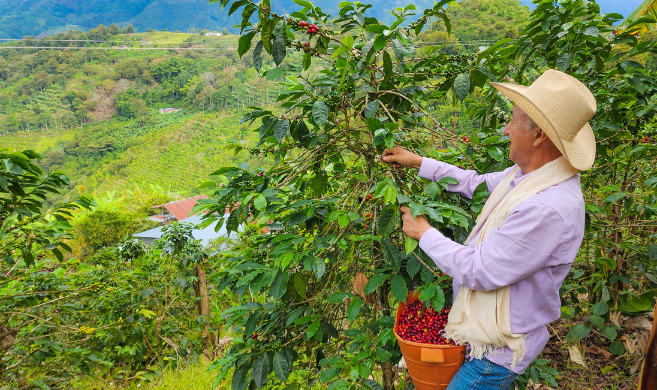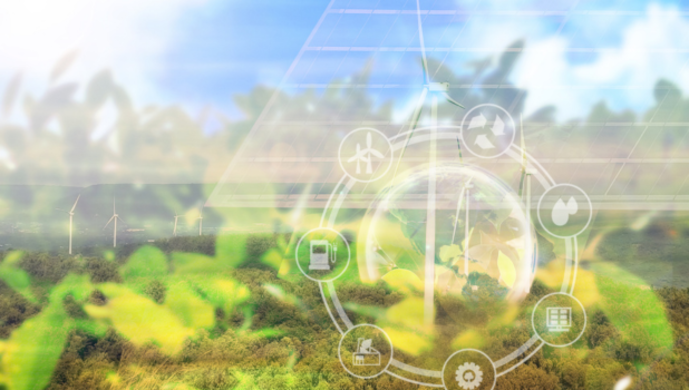Quentin Rouyer (H.19), Founder and CEO of Alternative Café, a fair-trade coffee importer and distributor
Alternative Café imports and distributes coffees directly from its producers, mostly through its online shop. We promote a new model where coffees are grown, roasted, and packaged in their country of origin. We also organize a yearly international coffee competition in Spain, the World Coffee Challenge, to award the world’s finest coffees, provided they are roasted in their country.
How is your business plan beneficial, or at least not detrimental, to the planet?
The coffee industry has much to improve. By promoting “roasting at origin” as a new standard for coffee, we aim to accelerate the virtuous circle that has started to take place in various producing countries.
Indeed, most coffee growers are stuck in the green coffee trade, where there is little value to make and quantity at the lowest cost possible is all that matters. But when coffee growers start roasting and tasting their own coffee, they see their work differently, learn a lot more about coffee, and are directly incentivized to improve the way they grow it.
By selling roasted coffee, by developing their own brands, they not only start to actually make a living, but they also gain resources to invest in better agricultural practices. And as they grow, they can hire more people and boost the local economy.
By promoting “roasting at origin” as a new standard for coffee, we aim to accelerate the virtuous circle that has started to take place in various producing countries.
This is not only relevant when exporting coffee through our company but also by serving their local markets: even today, you can find coffees roasted in France, Italy, or Switzerland in supermarkets of producing countries because our popular brands would reimport green coffee after roasting it. This practice may seem preferable but is actually a social and ecological nonsense.
The local markets can become very competitive and push for higher quality to stand out. The importance of quality makes them pay workers better, especially pickers who are no longer interchangeable. It also makes them build better ecosystems because water management, abundant wildlife and agroforestry, and natural and honey methods are key to crafting outstanding coffee. This allows local actors to develop and grow, innovate, and bring science to the service of collective benefits and sustainability.
Also, we only sell coffee in whole beans, primarily because quality coffees deserve to be ground at the last moment before brewing (coffee flavors are very volatile, if your coffee is pre-ground or in pods/capsules, it’s already lost most of its taste and freshness), but the positive effect of that is we are keeping coffee environment friendly. Pods and capsules require material and energy to make and recycle, which are unnecessary to make a cup of coffee, and detrimental to the planet.
Then, it may seem like a small drop in the ocean, but bringing quality coffee to the consumer helps change consumption habits since coffee can be drunk (and is more enjoyable) without sugar or milk. It is both healthier and requires less environmental resources.
What challenges do you face when developing a business that is both profitable and not transgressing planetary boundaries?
By committing to giving the right value to coffee producers and incentivizing good practices at origin, we are hands down the coffee company with the lowest margins. Note that roasted coffee is taxed when entering the UE, whereas green coffee is not; this import tax affects the margin even more.
Also, because French consumers' willingness to pay for better or ethical coffee is still low (a problem of lack of coffee education and purchasing power), it is very hard to price these coffees where they should be, making it hard to offer retailers the margins they are used to for coffee. Another challenge is that many governments have not realized the opportunity and do not support it, sometimes even making it almost impossible to export roasted coffee (Ethiopia).
On the environmental side, the impact at the origin is immensely positive, but of course, you can always improve. There is still one point for us to tackle, which is more concrete and visible to consumers and retailers than all the immense good at origin. As a young company, we can only order relatively small quantities of products at a time (under 100kg). Producers’ most affordable option for shipping this type of quantity is through the main carriers, and they mostly will use air transportation.
-> If more coffee companies started to adopt this model or at least were willing to work alongside people like us instead of bringing us down, we could scale shipments and use more environment-friendly transportation.
-> If more transportation companies made shipping smaller quantities of products possible and affordable in environmentally friendly ways, it would solve the problem.
What about the social and inclusive aspects of your business?
“Roasting at origin” is the most impactful change the coffee industry has seen. Growing coffee and preparing the beans for roasting represent 99% of the work and are all done at the origin. Yet the value that goes back to origin is less than 10% of the final value, with the coffee growers getting in average 3-5% (and even less in coffee capsules). The added value of coffee is created at roasting because this is when it becomes consumer-ready. This explains why, despite the constant increase in coffee's consumer price and the growing demand for coffee, the coffee business remains extractive and exploitative.
As introduced earlier, roasting at the origin creates a virtuous circle by letting them generate the added value of coffee. The value that goes back to producers ranges between 40 and 55% of the final price depending on taxes and transportation costs. This creates jobs locally, the need for quality incentivizes paying people better so they do the job correctly, and externalities help develop local economies. It makes coffee a lever for development. Universities and various agronomy schools develop programs for coffee growers to learn more knowledge and get higher education. As countries become proud of their coffee, coffee culture grows, and more coffee shops open in the cities, creating jobs and opportunities.
(Note that in various countries, coffee is grown in remote regions that do not benefit from classic economic circuits, are the places where native communities live in extreme poverty, are places where opium and other dangerous cultivations can replace coffee when it does not allow to make a living.)
How do you make sure that your innovation will not bring unwanted consequences, contrary to business as usual?
This is a very good question. It is hard to imagine unwanted consequences right now because there is still so much work to do, and the impact is highly positive. But I have seen how current coffee businesses have turned very good concepts into shadows of themselves. This is the case of the “Fairtrade” and “specialty coffee” movements. Both were imagined and put in place with goodwill and ambitions for a brighter future. For various reasons, they both failed at their objective, becoming a marketing tool for brands while minimizing the problems in the public’s eyes, which assumes these initiatives work.
I think there are two ways through which we can make sure this does not happen with what we are doing:
- Staying firm on the independence of the local people we work with. It is very tempting for companies to buy farms at origin; this is something that we have seen with both giant organizations (like Starbucks) and small organizations (like L’Arbre à Café). Once you realize the work at origin is the most important, and that people appreciate that coffee must be made from seed to cup, roasted at origin, as a company with a roasting culture, instead of giving up the bean to cup to those who work from seed to bean, you are tempted to take control of the work from seed to bean. This could lead to a new form of colonization of producing countries, where you could label your coffee as “roasted at origin” while building a new exploitation model where the local economy would not necessarily flourish through coffee.
- Pushing for geographic indication protection. Right now, roasters and brands can use the information they receive from coffee traders. They can use the name of the farms the green beans are from, they can use the name of the terroir, the region, the country. There is a world where we bring people to realize the importance of the origin, and more and more terroirs become appreciated for their uniqueness and get a premium (this is something that is currently a problem in specific terroirs from developed countries, like Kona in Hawai or La Réunion in France); while value does not come back to the terroir because the consumer cannot really identify the difference between the coffee that has been 100% made in the terroir bringing the added value to the origin, and the coffee that sold green without the added value.
What do you recommend to other entrepreneurs?
My main recommendation is not to be afraid to do things differently than the current businesses. You may seem crazy, but this is how you can bring about real change.
When I learned about the European coffee industry and went to meet industry leaders at fairs and events, the last thing that would come to their mind would be to do what I was doing. For them, coffee growers should remain farmers, and our coffee companies must buy green coffee and roast it. This is the unquestionable “given.” They all talk and genuinely care about social conditions at origin, about the effects of coffee on the environment, and spend a lot of resources to try to make things better; when the main reason these problems exist and persist is because of that “given.” The industry needs to reinvent itself, probably wind down or accept giving producing countries the main role.
The industry needs to reinvent itself, probably wind down or accept giving producing countries the main role.
In every domain, there are fundamental things to question and challenge. It takes open-mindedness, a willingness to “fight” against the current, or at least a capacity to “survive” for years before the model works and becomes profitable. The most innovative ideas might not get any “quick wins”, might not convince investors at the beginning, but they are always worth the try when they are driven by good motives. The ability to pivot and adapt is key rather than giving up.








